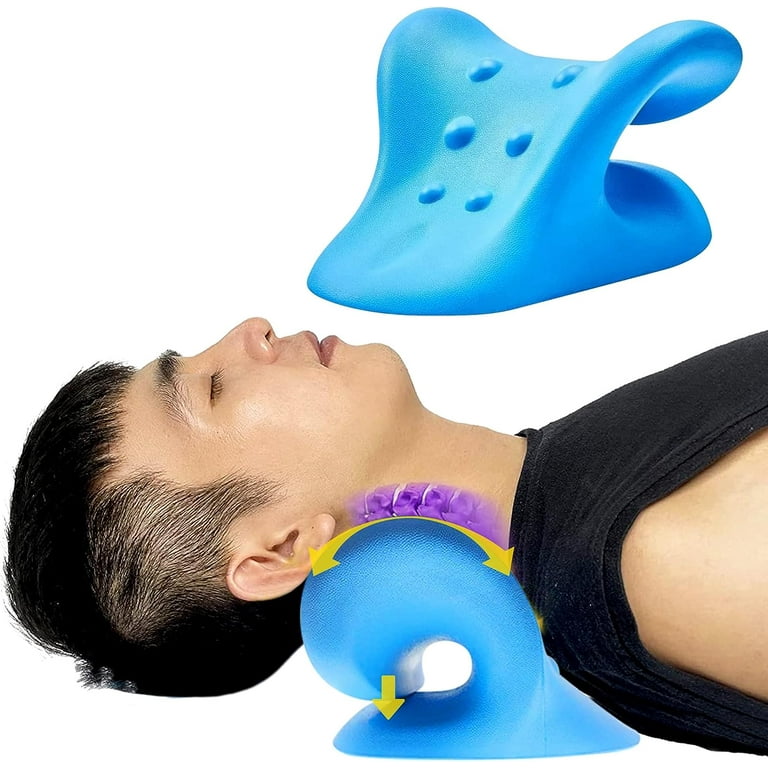Why the Neck Cloud is a Must-Have for Alleviating Neck Tension
Why the Neck Cloud is a Must-Have for Alleviating Neck Tension
Blog Article
The Impact of Tension on Neck Discomfort: Approaches for Lowering Tension and Discomfort
In today's hectic globe, it's no secret that anxiety has become a prevalent aspect in the onset and worsening of neck pain. Join us on a journey to unwind the influence of stress on neck discomfort and discover reliable methods to alleviate discomfort and enhance general top quality of life.
Recognizing Stress-Related Neck Pain
Stress-related neck pain can manifest as stress, tightness, or discomfort in the neck and shoulder area. The connection in between anxiety and neck pain exists in the body's physiological action to tension, which can result in muscular tissue stress and tightness in the neck muscle mass.

Identifying Common Stress Areas
One usual stress location is the neck, where stress and anxiety commonly shows up physically. Stress headaches, rigid neck muscle mass, and limited array of activity are typical signs of stress-related neck tension. Being aware of these common tension areas can help people acknowledge the physical indications of tension and take actions to address them prior to they intensify right into persistent discomfort or discomfort.
Implementing Leisure Strategies
Leisure methods are important devices for lowering neck pain caused by tension. Additionally, activities like yoga exercise and tai chi incorporate both physical motion and leisure, making them reliable techniques for decreasing tension and neck pain. By including these relaxation techniques into your daily routine, you can help take care of anxiety degrees, minimize tension in the neck, and minimize pain linked with stress-induced neck discomfort.
Incorporating Self-Care Practices
Incorporating self-care practices is vital for preserving overall wellness and handling stress-related neck pain effectively. Participating in routine exercise, such as mild extending workouts or yoga, can help ease tension in the neck and shoulders. Practicing great pose throughout the day and taking frequent breaks from long term resting or screen time can likewise prevent pressure on the neck muscles.
Moreover, prioritizing ample rest and establishing a regular rest routine can add significantly to minimizing stress and anxiety degrees and promoting relaxation. Developing a relaxing bedtime regimen, such as reading a book or taking a warm bath, can assist prepare the mind and body for relaxed sleep. Additionally, maintaining a balanced diet regimen rich in nutrients and remaining moistened can sustain general health and wellness and decrease inflammation that might aggravate neck pain.
Incorporating mindfulness methods, such as deep breathing exercises or reflection, can help manage stress and promote leisure. Requiring time for oneself, taking part in leisure activities, and setting boundaries to secure personal time are likewise crucial facets of self-care that can add to lowering stress and anxiety and minimizing neck pain.
Seeking Specialist Assistance
Just how can individuals efficiently deal with relentless neck discomfort that is affecting why not check here their life and well-being? Looking for expert aid can be an essential action in handling and minimizing neck discomfort. Consulting with healthcare professionals such as chiropractics physician, physiotherapists, or orthopedic experts can offer valuable insights and customized therapy strategies. These professionals can conduct extensive assessments to diagnose the underlying reasons for neck pain and advise appropriate treatments.
Chiropractic practitioners specialize in spine adjustment techniques to enhance alignment and minimize stress in the neck location. Physical therapists supply targeted stretches and exercises to reinforce muscles, enhance adaptability, and boost total neck function. Orthopedic specialists can provide sophisticated medical treatments such as shots or medical alternatives for serious cases of neck discomfort.
Verdict

Stress-related neck discomfort can manifest as tension, rigidity, or discomfort in the neck and shoulder area. The link in between stress and neck pain exists in the body's physical reaction to stress and anxiety, which can result in muscle stress and rigidity in the neck muscle mass. Stress headaches, stiff neck muscle mass, and restricted range of movement are typical signs and symptoms of stress-related neck stress. By incorporating these relaxation strategies right into your day-to-day regimen, you can aid handle stress and anxiety degrees, decrease tension in the neck, and relieve pain linked with stress-induced neck pain.

Report this page